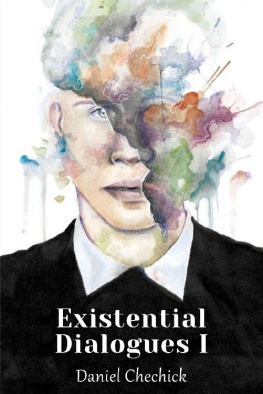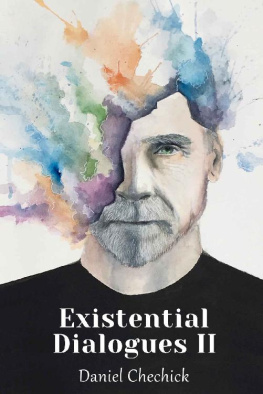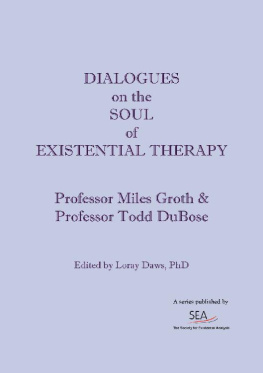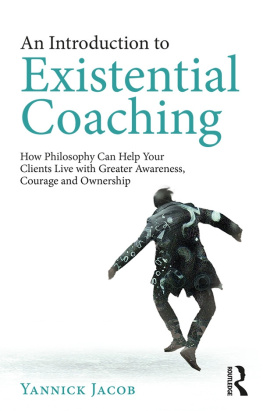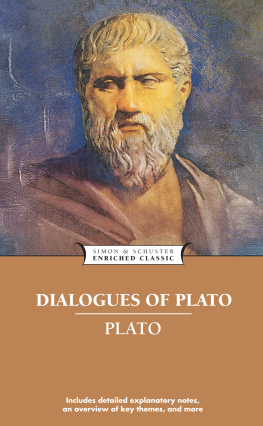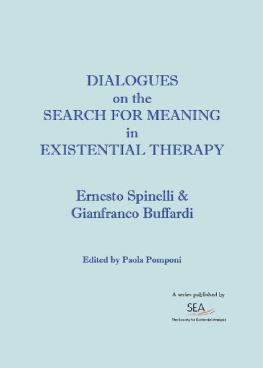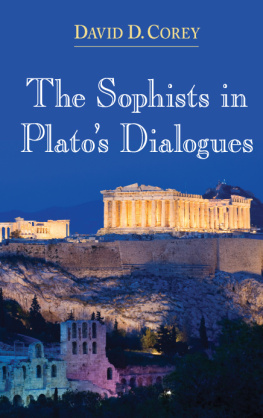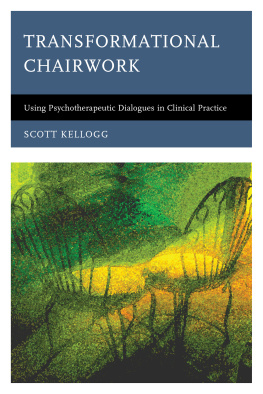DANIEL CHECHICK - Existential Dialogues I
Here you can read online DANIEL CHECHICK - Existential Dialogues I full text of the book (entire story) in english for free. Download pdf and epub, get meaning, cover and reviews about this ebook. year: 2019, publisher: Daniel Chechick, genre: Religion. Description of the work, (preface) as well as reviews are available. Best literature library LitArk.com created for fans of good reading and offers a wide selection of genres:
Romance novel
Science fiction
Adventure
Detective
Science
History
Home and family
Prose
Art
Politics
Computer
Non-fiction
Religion
Business
Children
Humor
Choose a favorite category and find really read worthwhile books. Enjoy immersion in the world of imagination, feel the emotions of the characters or learn something new for yourself, make an fascinating discovery.
- Book:Existential Dialogues I
- Author:
- Publisher:Daniel Chechick
- Genre:
- Year:2019
- Rating:5 / 5
- Favourites:Add to favourites
- Your mark:
- 100
- 1
- 2
- 3
- 4
- 5
Existential Dialogues I: summary, description and annotation
We offer to read an annotation, description, summary or preface (depends on what the author of the book "Existential Dialogues I" wrote himself). If you haven't found the necessary information about the book — write in the comments, we will try to find it.
Existential Dialogues I — read online for free the complete book (whole text) full work
Below is the text of the book, divided by pages. System saving the place of the last page read, allows you to conveniently read the book "Existential Dialogues I" online for free, without having to search again every time where you left off. Put a bookmark, and you can go to the page where you finished reading at any time.
Font size:
Interval:
Bookmark:
Existential Dialogues I
By
Daniel Chechick
Translated from Hebrew by Zvi Chazanov
Cover : Arina Albu
All rights reserved. No part of this publication may be reproduced, translated, stored in a retrieval system, received or transmitted in any form or by any means, electronic, mechanical, photocopying or otherwise without the written permission of the copyright's owner.
Copyright Daniel Chechick, 2018.
050-7775579
"We must believe in free will - we have no other choice."
Isaac Bashevis Singer
Table of Contents

T hroughout life, a person may encounter many questions without having pause to watch and contemplate, to wonder what everything means for them, personally.
What did I ask for, other than gentle moments of existence in which I could devote myself to the silence within me and debate my spirit over real decisions on real issues?
For what is the common alternative?
To annihilate myself in blind devotion to the choices of the many who would dictate my way of life, though I never asked for their advice?
Such a choice would be an insult.
I then thought there must be another way to live, before that predetermined script which some are so quick carve into the spirits of young people.
Harsh words of this kind have burst out of me, a defensive storm protecting me from the possible insult of being a leaf, blowing in the wind, without any hold, without any internal decision.
That is why I determined to hold an internal discourse with my spirit over all of those great questions which have always haunted my mind, without letting external voices be a determining factor.
Moreover, I sought to have a discussion with the old man I will become - to find an appropriate partner for these intimate conversations, so rare in the freezing reality.
Such quiet conversations, where thoughts come up uncensored, are at times a worthy reason to still live. To still be human.
Recalling Mom's or Dad's Looks

O nce in a while, I indulge in prophecies about my thoughts and emotions in my old age, and then I'm overwhelmed with horrible anxieties which my reason strives to suppress completely. It puzzles me.
Go ahead; feel absolutely free to share it with me!
On those occasions, I envision myself as one of those godforsaken souls whose outrageous fortune doomed them to spend the rest of their lives in complete solitude. Those people are buried in their daily routine of a morning walk to their benches in the park, as long as their legs didn't give way, where they are engulfed with that cruel silence, which afflicts those who have nobody to have a word with. Such a person, in order to escape humiliation by one's own consciousness, doesn't even dare to express one's thoughts aloud, lest those overhearing him deem him or her insane.
Why are you afraid of becoming as forsaken as him? How likely is this to come true?
Of course, I have no rational reason to feel this way, but what human fears and anxieties are rational, after all? My thoughts are just carried to that realm of unlikely catastrophe, with which I struggle. Nonetheless, I beg you to listen to my subtle words.
My Sincerest apologies. Please, go on.
Well, I am afraid I might outlive everybody else, and be the last to perish, after I have witnessed the life stories of them all, with nobody to appreciate my own. Do you see my point?

Your, existential reality, so excitingly expressed, had kindled my heart, since all humans share this fear, though every individual articulates it differently. Isnt this the greatest and deepest of all human fears?
What is the Great Play of Life all about when the audience has gone!? After all, you are certainly an unworthy audience of your own play! So here you are, imagining a situation where you have nobody to trigger your emotions, with reminders like: as a child, you did so and so, to the extent of you doubting your own past, having nobody to attest to it.
You read my mind precisely! it is tremendously horrifying, to outlive your acquaintances. I cannot decide which of my two old-age fears haunts me worse: either this one, or the inability even to envision the faces of my mother and father, or other loved ones.
This fear is nothing but a way of suppressing the recognition of your own mortality, in the form of imagining the loss of members of your circle. After all, their existence served you, inadvertently, to conceal the all too common fear of finiteness, so their absence probably forced you to face this inevitability sooner than you probably liked to. But, look how wonderful is the trick your psyche played, how cunningly our mind is manipulated. Or, if you wish to put it this way, the manipulation one exerts on one's psyche. Isn't it a revolutionary approach?
Hold it! Do you suggest that all these thoughts actually express the fear of my own perish?!
Correct. As natural your feelings about your own death might be, one's courage is attested by the capacity of accepting the Absence of Life. After all, reality allows nothing like Death, just an Absence of Life. Since so far we have no definite knowledge of what happens after one's demise, we cannot assume the dead "go somewhere". All we know is that their life as we knew them ceased. This complex concept allows humans to overcome their fears of their own finiteness, realizing that one will not be there to experience one's last moment. In other words, one realizes we could not know we had already departed. There is a reason why one only sees the death of fellow-human's, but finds it hard to contemplate one's own death. I am perfectly aware of this psychological approach being beyond the understanding of most mortals. Therefore, I wish you to reiterate this statement in your mind.
Does it mean that all my thoughts about the inevitable end of my loved ones are nothing but worries about my own loss? Your approach seems unconceivably egocentric, since my boundless and unconditional love for my dear ones is beyond any doubt. Yet I do understand the rigorous analytic logic which drove you to say what you've just said. It compels me to recognize my own finiteness, which, in turn, will also illustrate to me the finiteness of others as well.
But what did you mean by saying that one manipulates one's own mind? Isnt it the other way around?
I have no certain knowledge of that. However, I believe that psyche cannot be perceived as completely isolated from the individual. Rather, it's the individual's metaphoric and delusional intellect that manipulates psyche. Thus, if you have some anxiety, all your manipulations serve to conceal your vulnerabilities. However, such reasoning is possible for an adult who seek defenses, but how could it be managed by an infant suppressing a traumatic experience, which emerges in adulthood? How could the child's infant brain manage to protect him at such an early age? How did his brain know this was the right thing to do? How did it realize that such an experience threatens the person's peace of mind?
I, like the Greek philosophers, failed to crack this enigma, of the balance of powers between human psyche and human intellect.
As far as the human that is me is concerned, I am certain than my intellect works in less than full capacity, since my psyche is infested with fears and anxieties, which restricts my existence. However, if I was fortunate enough to listen to the conclusions of your intellect, which dare probe even to the depth of the psyche! this would have been a real life-transforming miracle.
Next pageFont size:
Interval:
Bookmark:
Similar books «Existential Dialogues I»
Look at similar books to Existential Dialogues I. We have selected literature similar in name and meaning in the hope of providing readers with more options to find new, interesting, not yet read works.
Discussion, reviews of the book Existential Dialogues I and just readers' own opinions. Leave your comments, write what you think about the work, its meaning or the main characters. Specify what exactly you liked and what you didn't like, and why you think so.

